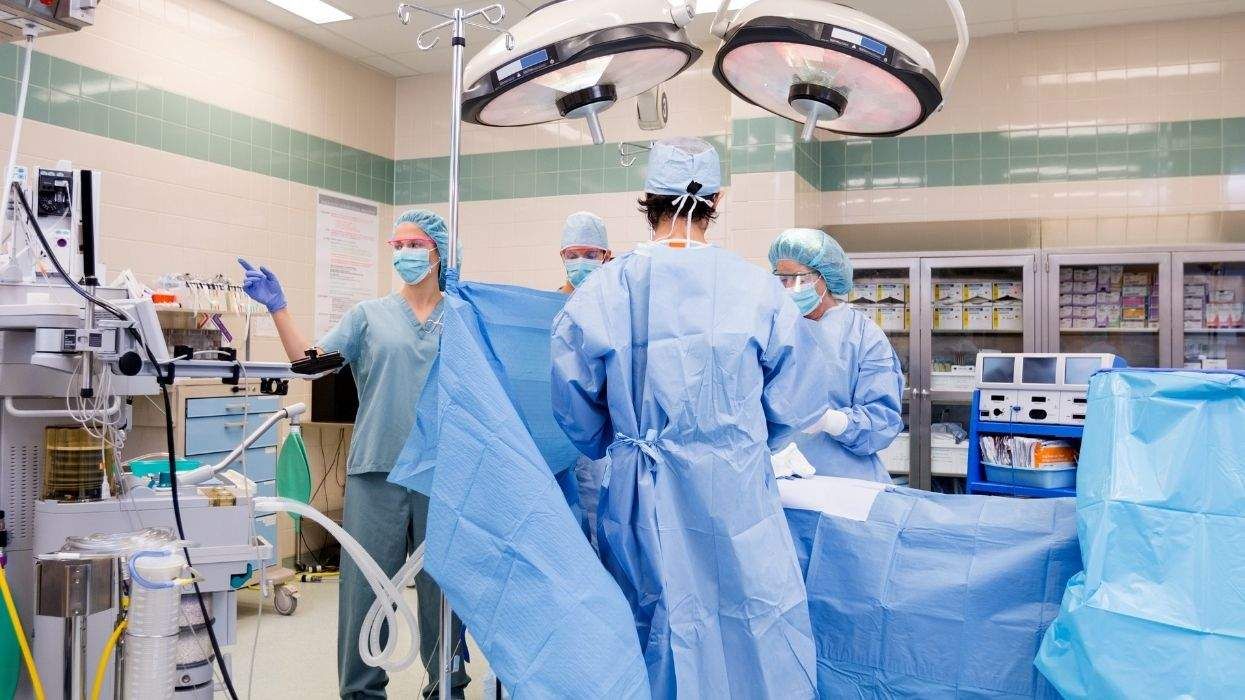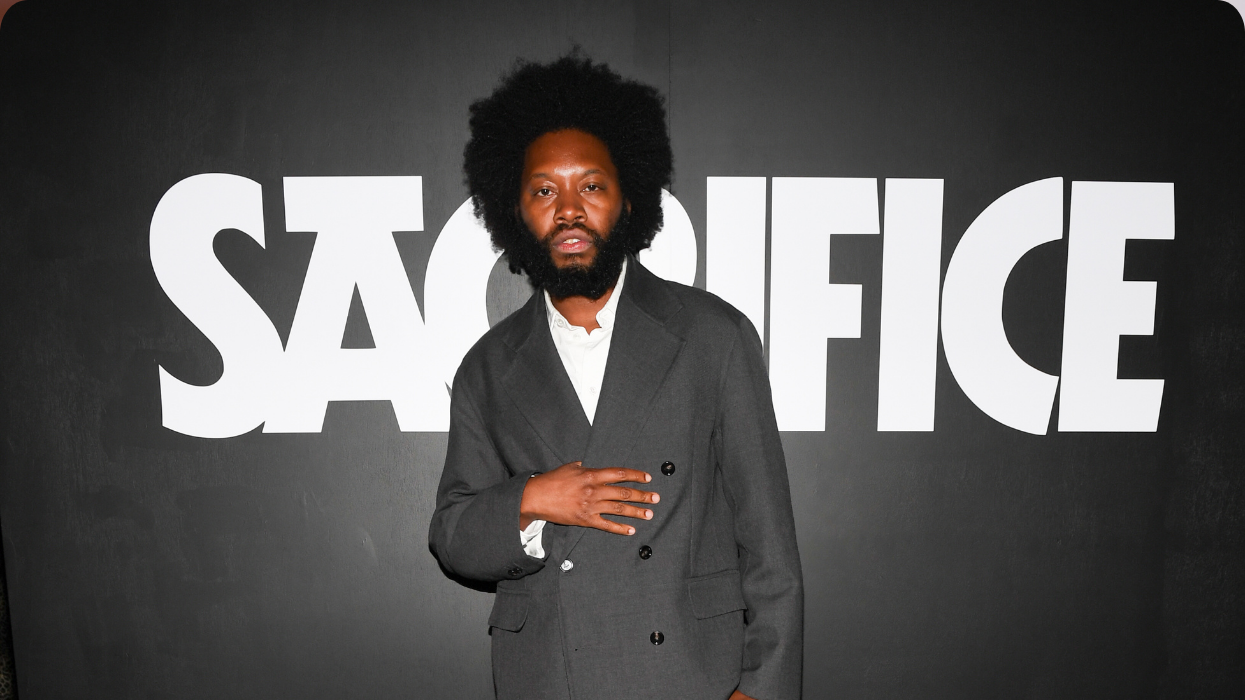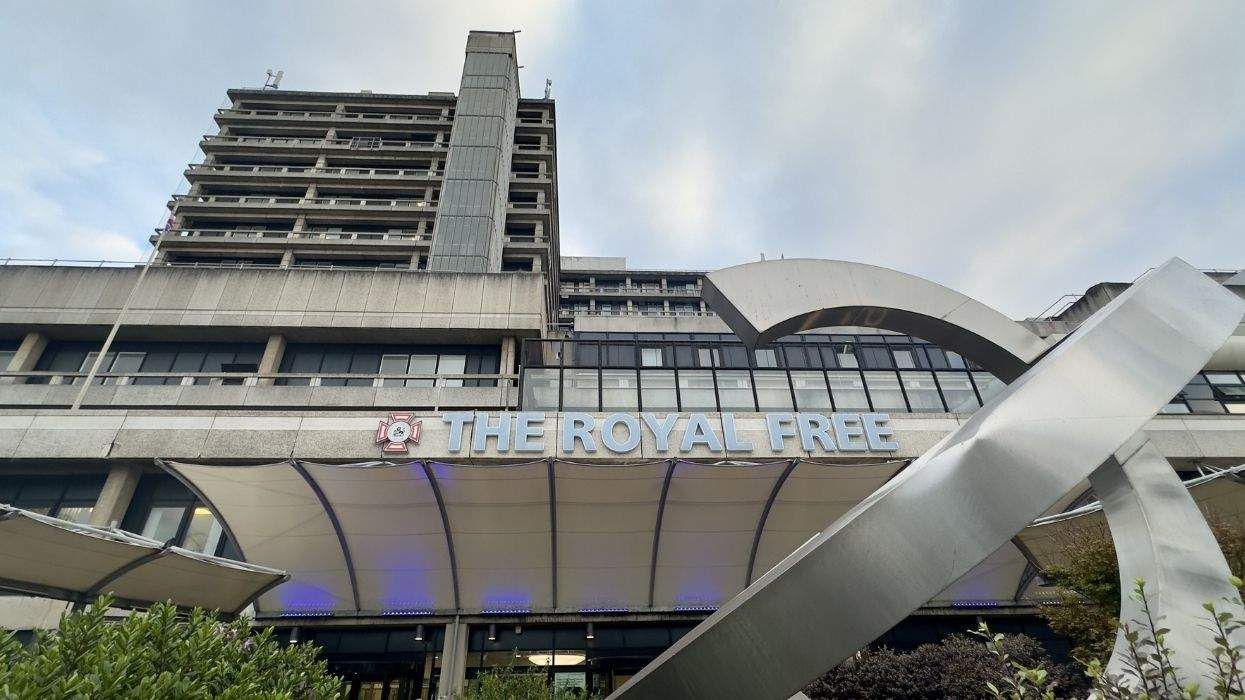August 11 2005 4:53 PM EST
CONTACTAbout UsCAREER OPPORTUNITIESADVERTISE WITH USPRIVACY POLICYPRIVACY PREFERENCESTERMS OF USELEGAL NOTICE
© 2025 Equal Entertainment LLC.
All Rights reserved
All Rights reserved
By continuing to use our site, you agree to our Privacy Policy and Terms of Use.
We need your help
Your support makes The Advocate's original LGBTQ+ reporting possible. Become a member today to help us continue this work.
Your support makes The Advocate's original LGBTQ+ reporting possible. Become a member today to help us continue this work.
A radical ultra-low-fat diet and other lifestyle changes may help keep early-stage prostate cancer from worsening, according to a study that is the first attempt to test the theory. It's a small study that tracked men whose tumors weren't aggressive. Still, the research, published in the September issue of The Journal of Urology, promises to increase interest as to whether diet might really help battle cancer.
The study was led by heart health guru Dean Ornish, and used his famously strict regimen, where people become vegetarians, limit dietary fat to 10% of total calories, exercise regularly, and learn stress-management techniques such as yoga.
Ornish's studies show that regimen can help heart disease, but why try it on prostate cancer? There is some evidence that diets high in fat increase the risk of prostate cancer, and that certain foods--such as broccoli, or the nutrient lycopene from cooked tomato products--are protective. So Ornish and fellow researchers at the University of California, San Francisco, recruited 93 men who had decided against treatment for early-stage prostate cancer, a route known as "watchful waiting."
Half were randomly assigned to the Ornish diet and lifestyle regimen; the others weren't asked to vary their usual routines. The researchers sent participants' blood samples to Memorial Sloan-Kettering Cancer Center in New York to measure PSA, or prostate-specific antigen, a marker used to track prostate cancer growth. After one year PSA levels had decreased 4% in the diet group--unusual for untreated patients--while PSA levels rose by 6% in the control group. That difference wasn't big, but it's statistically significant, and the researchers plan to continue tracking the men to see if it really signals better health.
Also, six of the nondieters had undergone cancer treatment in that year after all because their disease was progressing. None of the dieters were treated.
"It's hard to get too excited about these results because you took a population of men who, frankly, are likely to do well no matter what," cautioned Durado Brooks of the American Cancer Society. But, Brooks added, "this definitely should open the door to more research."
The study comes just months after another study suggested low-fat diets might help women avoid a recurrence of breast cancer.
More than 230,000 U.S. men are expected to be diagnosed with prostate cancer this year, and 29,500 will die, the cancer society estimates. (AP)
From our Sponsors
Most Popular
Bizarre Epstein files reference to Trump, Putin, and oral sex with ‘Bubba’ draws scrutiny in Congress
November 14 2025 4:08 PM
True
Jeffrey Epstein’s brother says the ‘Bubba’ mentioned in Trump oral sex email is not Bill Clinton
November 16 2025 9:15 AM
True
Watch Now: Pride Today
Latest Stories
RFK Jr.’s health department is using religious freedom to strip transgender people of health care
December 09 2025 5:34 PM
D.C. appeals court keeps Trump’s transgender military ban in place despite one judge’s blistering dissent
December 09 2025 3:48 PM
True
From Riley Gaines to OU, conservatives are making their failures everyone else's problem
December 09 2025 3:35 PM
Punished for bleeding: How periods in prison become a trap
December 09 2025 1:39 PM
Dwayne Johnson’s daughter hard launches her new wrestler girlfriend
December 09 2025 12:26 PM
Jeremy O. Harris released from custody in Japan after drug smuggling allegations
December 09 2025 12:14 PM
AIDS activist group ACT UP changed the world. Here's why its work still matters today
December 09 2025 10:34 AM
New mutant mpox strain discovered in England — how concerned should people be?
December 09 2025 9:27 AM
Is 'Heated Rivalry' based on a true story? Yes...sort of
December 08 2025 5:01 PM
Trending stories
Recommended Stories for You




































































Charlie Kirk DID say stoning gay people was the 'perfect law' — and these other heinous quotes